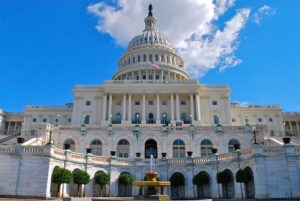Three critical developments in the House reconciliation bill
Right now, Congress is finalizing a massive budget reconciliation bill that threatens philanthropy’s freedom to give and endangers the health and well-being of many millions of Americans.
We are reaching out today to raise awareness of three critical developments in the ongoing budget reconciliation process and to encourage you to act.
1) Taxes on Private Foundations
The House is considering legislation that would impose new taxes on private foundations. The breakdown of the proposed taxes is as follows:
- 1.39 percent tax on private foundations with assets of less than $50,000,000;
- 2.78 percent tax on private foundations with assets of at least $50,000,000 and less than $250,000,000;
- 5 percent tax on private foundations with assts of at least $250,000,000 and less than $5,000,000,000; and
- 10 percent tax on private foundations with assets of at least $5,000,000,000.
These new taxes will take resources directly from programs that help vulnerable communities. As this is a direct threat to the core operations of foundations, the nonprofits they support, and the communities they serve, self-defense communications against this legislation are permitted.
For a look at all of the tax bill’s provisions that affect philanthropy, see the Council on Foundations’ comprehensive primer.
2) Dramatic Cuts to Medicaid
While the House is working to raise taxes on foundations, they are also planning deep cuts to Medicaid.
The most significant changes being considered are:
- Adding cost sharing of up to $35 per service on adults covered by the Affordable Care Act’s Medicaid expansion with incomes between 100 percent and 138 percent of the Federal Poverty Level;
- Requiring states to increase the frequency of eligibility checks for Medicaid enrollees from once a year to once every 6 months;
- Prohibiting federal Medicaid funding from going to individuals without verified citizenship and reducing the federal share of Medicaid payments to states who provide coverage to non-citizens, even if they are doing so through their own funds;
- Requiring all states apply Medicaid work requirements for non-disabled adults without dependents; and
- Increasing documentation requirements for people to prove Medicaid eligibility, with limited timeframes to provide that verification.
An estimate from the non-partisan Congressional Budget Office shows that the proposed Medicaid provisions would increase the number of uninsured individuals by 7.6 million over the next 10 years. Visit KFF to see a full list of provisions.
3) Largest SNAP Cut in History
The House is also proposing to cut over $290 billion (nearly 30 percent) from the Supplemental Nutrition Assistance Program (SNAP). This would be the largest cut to the program in its history.
Some of the changes being considered include:
- Forcing states to pay for part of SNAP benefits based on their payment error rates;
- Changing work requirements, waivers, and other criteria for SNAP recipients who are able-bodied adults without dependents;
- Forcing states to pay for more of SNAP’s administrative costs;
- Scrapping the National Education and Obesity Prevention Program for SNAP; and
- Extending the general SNAP work requirement age to 64.
The Center on Budget and Policy Priorities estimates that about 1 in 4 SNAP participants, including more than 4 million children and more than half a million adults aged 65 or older and adults with disabilities live in a household that would be at risk of losing some of their food assistance, and an earlier report from The Commonwealth Fund discussed the combined impact of cuts to Medicaid and SNAP to state revenues.
Act Now
- Call your representatives:
- Tell them that new taxes on private foundations will jeopardize the availability of critical funding to communities at a time when they are needed more than ever because of federal funding cuts; and
- Share stories from your community illustrating how Medicaid and SNAP help people live healthier lives, and that cuts to those vital programs will cause irreparable harm.
- Sign on to the Council on Foundations’ action letter urging Congress to oppose harmful tax provisions.

